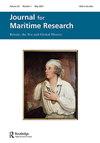A forgotten navy: fish, fishermen, fishing vessels and the Great War at sea
Q3 Arts and Humanities
引用次数: 3
Abstract
ABSTRACT Discussion about the Great War at sea tends to centre on capital ships and Jutland. Far less has been written about the crucial role played by fishermen, fishing vessels and their coastal communities. Yet armed fishing vessels and their fishermen crews were continually on the maritime front line. They formed the backbone of the Auxiliary Patrol, working principally on anti-U-boat patrols or minesweeping. Around 3000 fishing vessels were requisitioned whilst more than 39,000 fishermen joined the Trawler Section of the Royal Naval Reserve. The cultural, social and attitudinal gulf between working fishermen and many RN officers was enormous. Those vessels left fishing also played a vital role in maintaining the food supplies; many were sunk whilst working. Around 672 fishing vessels were lost through enemy action whilst either fishing or on Admiralty service. After the war, their substantial role was gradually forgotten, now hardly recognised. This paper examines their contribution.被遗忘的海军:鱼、渔民、渔船和海上大战
关于第一次世界大战的讨论往往集中在主力舰和日德兰半岛。关于渔民、渔船和他们的沿海社区所发挥的关键作用的报道要少得多。然而,武装渔船及其渔民一直在海上第一线。他们组成了辅助巡逻队的骨干,主要从事反潜艇巡逻或扫雷工作。大约3000艘渔船被征用,同时超过39000名渔民加入了皇家海军保护区的拖网渔船部门。在渔民和许多海军军官之间的文化、社会和态度上的鸿沟是巨大的。那些离开捕鱼的船只在维持食物供应方面也发挥了至关重要的作用;许多人在工作时沉没。大约有672艘渔船在捕鱼或为海军部服务时因敌人的行动而损失。战争结束后,他们的重要作用逐渐被遗忘,现在几乎不被承认。本文考察了他们的贡献。
本文章由计算机程序翻译,如有差异,请以英文原文为准。
求助全文
约1分钟内获得全文
求助全文
来源期刊

Journal for Maritime Research
Arts and Humanities-History
自引率
0.00%
发文量
0
期刊介绍:
The Journal for Maritime Research ( JMR ), established by the National Maritime Museum in 1999, focuses on historical enquiry at the intersections of maritime, British and global history. It champions a wide spectrum of innovative research on the maritime past. While the Journal has a particular focus on the British experience, it positions this within broad oceanic and international contexts, encouraging comparative perspectives and interdisciplinary approaches. The journal publishes research essays and reviews around 15-20 new books each year across a broad spectrum of maritime history. All research articles published in this journal undergo rigorous peer review, involving initial editor screening and independent assessment, normally by two anonymous referees.
 求助内容:
求助内容: 应助结果提醒方式:
应助结果提醒方式:


